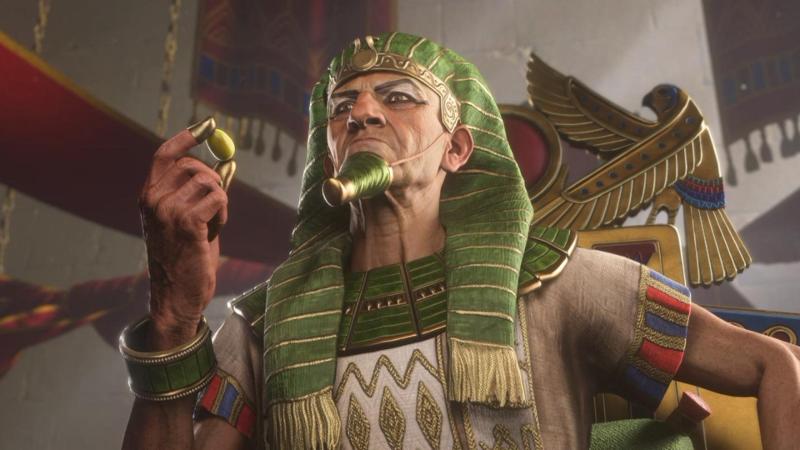Total War: Pharaoh takes players on a captivating journey back to the 12th century BC, immersing them in the collapse of the Late Bronze Age. With its vibrant visuals, engaging gameplay mechanics, and strategic depth, this game offers a unique experience for history enthusiasts and strategy game lovers alike. Let's delve into the world of Total War: Pharaoh and explore its captivating features.
Immersive Ancient Setting
Step into the rich and vibrant world of ancient civilizations during the Late Bronze Age.
Total War: Pharaoh transports players back to the 12th century BC, immersing them in the awe-inspiring setting of ancient civilizations. From the lush Nile delta to the majestic cultural centers of upper Egypt, the game's visuals bring the era to life with vibrant colors and intricate details.
Experience the grandeur of ancient architecture, the bustling activity of cities, and the beauty of the natural landscapes. Whether you're exploring the pyramids, traversing the desert, or engaging in epic battles, the immersive setting of Total War: Pharaoh will captivate your senses.
Catastrophic Collapse and Strategic Challenges
Navigate the collapse of the Late Bronze Age and face the strategic challenges it presents.
Total War: Pharaoh introduces players to the tumultuous period of the Late Bronze Age, where civilizations faced imminent collapse. As a leader of Egypt, Hittite, or Canaanite, you must navigate the challenges of looming civil wars, raids by the Sea Peoples, and the delicate balance of sustaining your farming ecosystem.
Strategize your actions, make alliances, and manage your resources wisely to survive and thrive in this era of chaos. The collapse of civilizations adds a sense of urgency and tension to the gameplay, making every decision crucial to your success.
Thematic Campaign Mechanics
Engage in the new thematic campaign mechanics to shape your playstyle and objectives.
Total War: Pharaoh introduces a new set of thematic campaign mechanics that allow you to shape your playstyle and objectives. One such mechanic is the royal court, where courtiers scheme and conspire to advance their claims on the throne. Dive into this mini-game and discover the rules of intrigue and power play.
Additionally, the ancient legacy and religion systems add depth to your campaign. Choose ancestral traditions, perform acts of sabotage, and build shrines to gain favor with the gods. These mechanics provide unique bonuses and enhance your economic and military strategies.
The Power of Outposts
Harness the benefits of outposts to strengthen your settlements and gain strategic advantages.
Total War: Pharaoh introduces the outpost system, which allows you to transform nearby settlements into forts, watchtowers, trading posts, and more. Each outpost offers unique benefits for its region and can be visited by your armies for specific buffs.
Strategically placing outposts between cities enables easier movement across vast deserts, while forts provide additional garrisons for defense. These outposts add a new layer of strategic depth to the game, allowing you to strengthen your settlements and gain an edge over your opponents.
Real-Time Battles with New Features
Engage in thrilling real-time battles with dynamic weather, destructible armor, and versatile stances.
Total War: Pharaoh continues the tradition of exciting real-time battles, but with new features that enhance the experience. Dynamic weather and terrain add an extra layer of tactical considerations, while destructible armor adds realism as units take damage.
Utilize the new stance system to strategically fade back or press forward unrelentingly, adapting your tactics to the battlefield. These new features, combined with the tried-and-true mechanics of Total War battles, create intense and immersive gameplay moments.
The Apocalyptic Drama of Collapse
Experience the apocalyptic drama as civilizations crumble and the gameplay pressure intensifies.
One of the most captivating aspects of Total War: Pharaoh is the collapse itself. As you progress through the campaign, you witness the region's overall health deteriorate, leading to turmoil and eventual collapse. The map darkens, reflecting the chaos and desperation of the era.
Feel the pressure mount as invading raiders storm the shores and internal disputes erupt into civil wars. The apocalyptic drama of the collapse adds a sense of urgency and intensity to the gameplay, creating a truly immersive experience.
Conclusion
Total War: Pharaoh offers a captivating journey back to the ancient world of the Late Bronze Age. With its immersive setting, strategic challenges, thematic campaign mechanics, and thrilling real-time battles, this game delivers an engaging experience for history enthusiasts and strategy game lovers. The collapse of civilizations adds a sense of urgency and drama, keeping players on the edge of their seats. Whether you're a veteran of the Total War series or new to the franchise, Total War: Pharaoh is a must-play for those seeking a unique and immersive historical strategy game.
FQA
Can I play as different civilizations in Total War: Pharaoh?
Yes, you can choose to play as an Egyptian, Hittite, or Canaanite leader, each with their own unique challenges and objectives.
Are there multiplayer options in Total War: Pharaoh?
No, Total War: Pharaoh focuses on the single-player campaign experience, allowing you to immerse yourself in the ancient world and shape the fate of civilizations.
What makes Total War: Pharaoh different from other Total War games?
Total War: Pharaoh stands out with its ancient setting, thematic campaign mechanics, and the intense drama of the collapse of civilizations. These elements create a unique and immersive experience within the Total War series.
Can I expect historical accuracy in Total War: Pharaoh?
While Total War: Pharaoh is based on the Late Bronze Age, it also incorporates some fictional elements to enhance gameplay. However, the game captures the essence of the era and offers a compelling historical backdrop.

